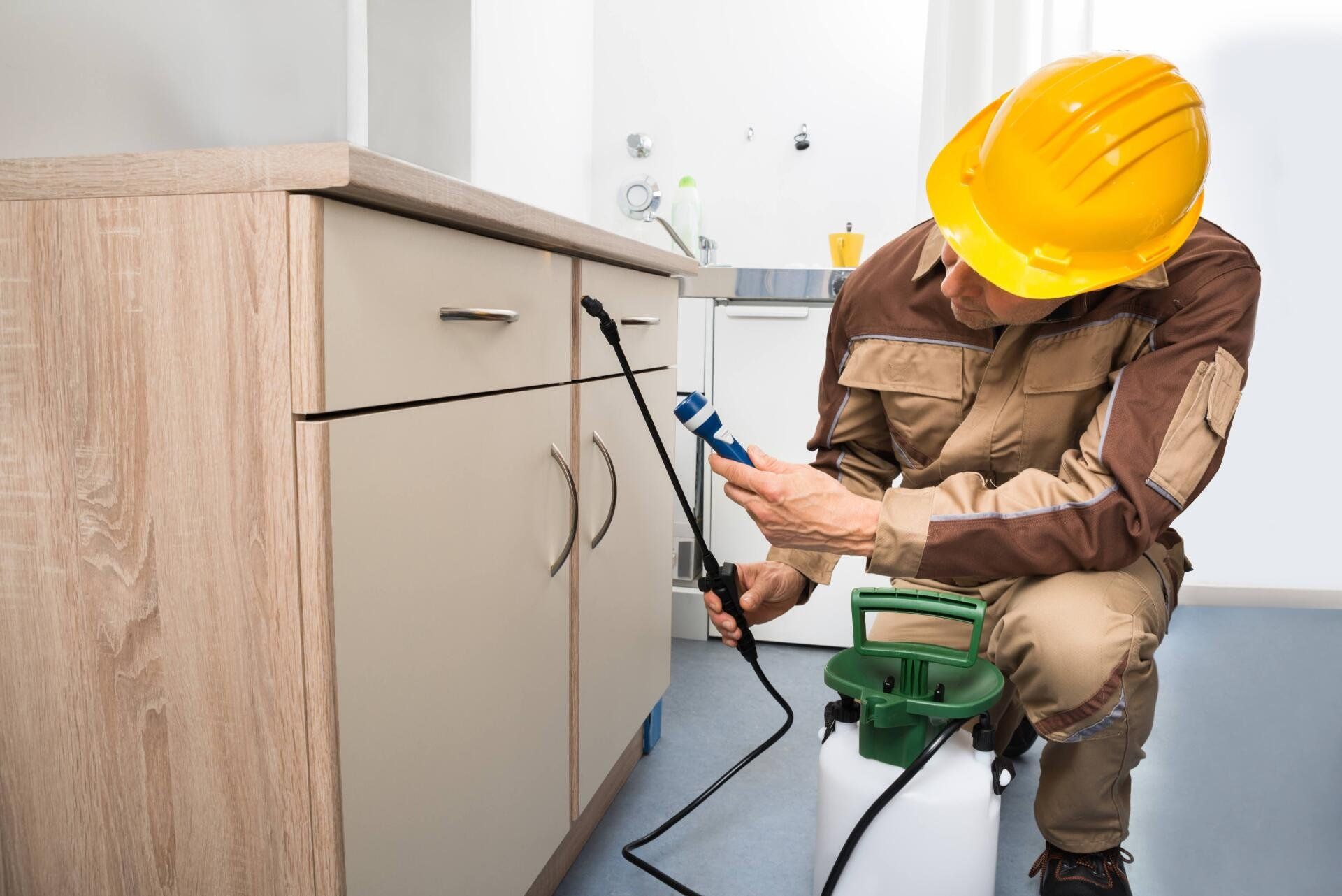Premier Pest Control Clovis Services: Your Comfort
Wiki Article
Recognizing the Various Strategies to Insect Control: A Comprehensive Overview

Natural Insect Control Techniques
Utilizing environmentally friendly techniques such as companion planting and biological pest control is vital for successfully handling bugs in agricultural settings. Companion planting involves growing different crops in distance to prevent bugs, improve nutrient uptake, and enhance general crop health. As an example, growing marigolds along with tomatoes can assist drive away nematodes. Intercropping maize with legumes can disrupt the reproduction patterns of insects like corn borers.Biological parasite control includes introducing all-natural predators or microorganisms to control pest populations. Ladybugs, for instance, eat aphids, managing their numbers without the demand for chemical pesticides. One more instance is the use of Bacillus thuringiensis (Bt), a microorganism that targets particular insect pests while being safe to human beings, animals, and advantageous pests.
These green methods not just reduce the dependence on synthetic chemicals but likewise help protect biodiversity and dirt health. By integrating all-natural pest control approaches into agricultural techniques, farmers can attain sustainable bug management while reducing negative effect on the atmosphere.

Chemical Parasite Control Solutions
Along with all-natural insect control techniques, the usage of chemical bug control solutions plays a significant role in effectively handling pest populaces in agricultural settings. Chemical parasite control services are created to target certain insects that may create substantial damage to crops. These remedies frequently consist of artificial chemicals that are created to eliminate pests quickly and successfully.Among the key advantages of chemical parasite control remedies is their performance in controlling bug infestations widespread. Farmers can use these services using different methods such as splashing, airing out, or seed therapy to protect their crops from hazardous bugs, weeds, and illness. Additionally, chemical bug control remedies are reasonably simple to use and can offer rapid outcomes, aiding farmers safeguard their returns and decrease financial losses.
Nevertheless, it is vital to make use of chemical bug control remedies judiciously to decrease possible negative influence on the atmosphere, non-target organisms, and human health. Proper application methods, adherence to security standards, and normal tracking are vital to make sure the responsible usage of chemical bug control services in farming methods.
Organic Insect Control Approaches
Biological parasite control comes close to take advantage of natural killers or microorganisms to take care of parasite populations in agricultural setups successfully. One usual organic control approach is the introduction of natural enemies, such as ladybugs or parasitic wasps, to target particular insects.An additional organic control method includes using pathogens like fungis, infections, or microorganisms to contaminate and kill insects. These microbial agents can be sprayed on crops or introduced right into the dirt to fight different parasites without damaging valuable bugs or various other wildlife. Furthermore, making use of pheromones to disrupt the breeding patterns of insects is an additional reliable organic control technique. By conflicting with their recreation, this approach assists to minimize bug populaces without the demand for chemical intervention. Generally, biological bug control strategies offer a sustainable and targeted service to discover this info here pest monitoring in farming.
Integrated Parasite Administration (IPM)
Integrated Pest Management (IPM) is a thorough technique that integrates various insect control strategies to effectively manage and reduce pest populations in farming systems. IPM focuses on long-term avoidance of insects through a combination of organic, social, physical, and chemical control techniques. By incorporating these different approaches, IPM intends to decrease reliance on chemical pesticides, decrease ecological impact, and advertise sustainable parasite management techniques.
One key aspect of IPM is the usage of biological controls such as natural killers, parasites, and virus to regulate pest populations. This technique utilizes the power of nature to preserve an equilibrium in between pests and their all-natural opponents without causing damage to the setting.
Additionally, IPM includes social practices like crop habitat, rotation, and cleanliness control to produce undesirable problems for parasites and interrupt their life process. Physical controls such as obstacles, mulches, and catches are also utilized to avoid parasite problems.
Physical and mechanical Parasite Control Methods
Utilizing non-chemical methods, such as navigate to this website physical and mechanical parasite control techniques, is a critical element of comprehensive parasite monitoring methods, building on the foundation of Integrated Parasite Monitoring's alternative method. Mechanical pest control entails the usage of physical barriers or catches to stop insects from accessing and damaging plants or structures. This approach can include strategies like setting up displays on windows, using row covers in farming, or employing sticky catches to catch pests.Physical insect control methods, on the other hand, focus on straight removing insects with physical means. Using warmth therapies to eradicate bed insects or vacuuming up parasites like spiders or ants can be effective methods to take care of infestations without the usage of chemicals. By including these mechanical and physical bug control techniques into an Integrated Parasite Management plan, experts and people can reduce reliance on chemicals while still successfully managing pest populations and lessening damages.
Verdict

In enhancement to all-natural parasite control techniques, the usage of chemical pest control remedies plays a significant duty in properly handling pest populations in farming environments.One of the vital advantages of chemical bug control remedies is their effectiveness in managing insect problems on a big range.Integrated Pest Management (IPM) is a comprehensive approach that integrates different pest control approaches to properly handle and decrease pest populations in farming systems.Utilizing non-chemical techniques, such as mechanical and physical bug control techniques, is a crucial element of thorough insect monitoring techniques, building upon the structure of Integrated Pest Administration's all natural approach. By integrating these physical and mechanical pest control methods right into an Integrated Parasite Management strategy, specialists and people can lower reliance on pesticides check out here while still successfully taking care of pest populations and lessening damage.
Report this wiki page